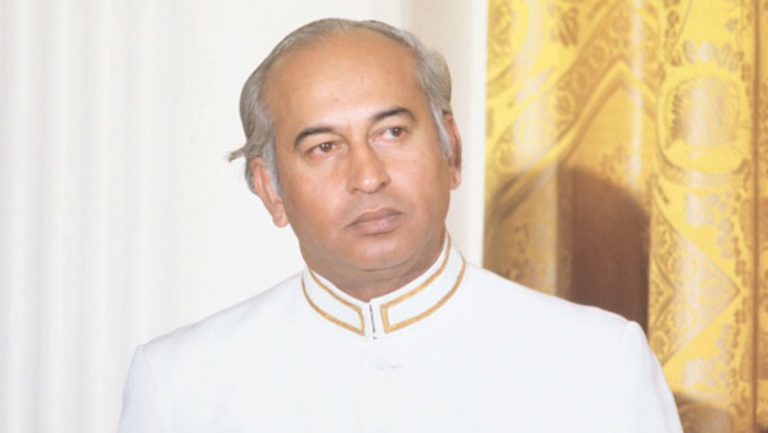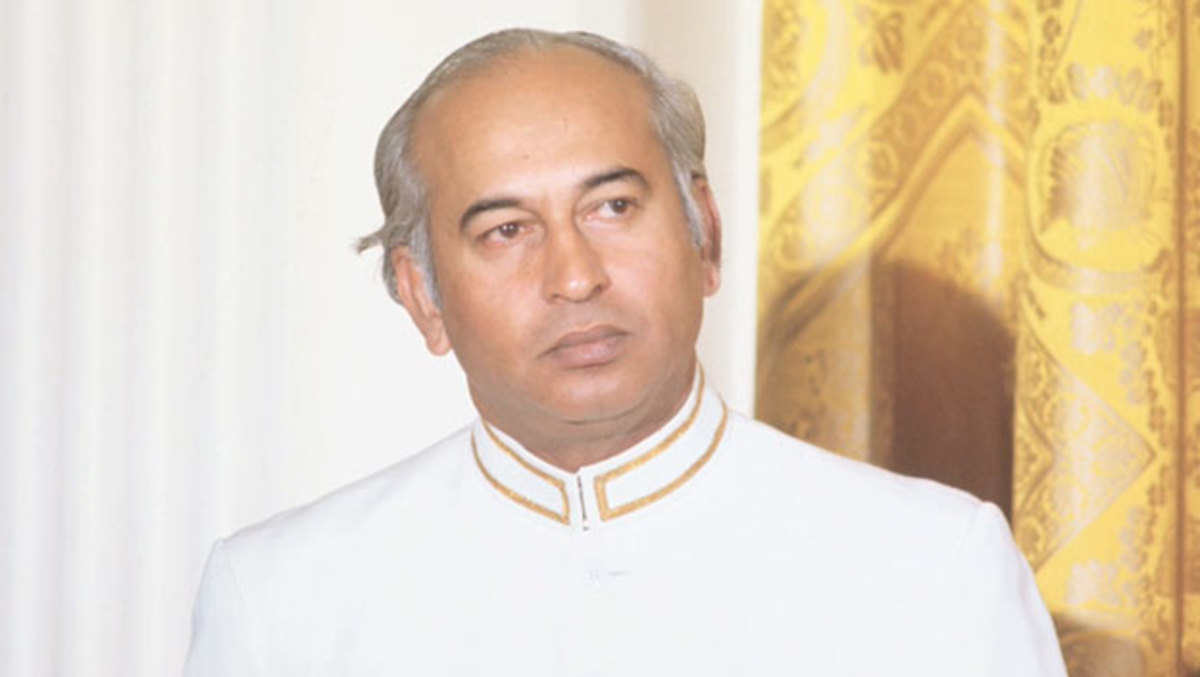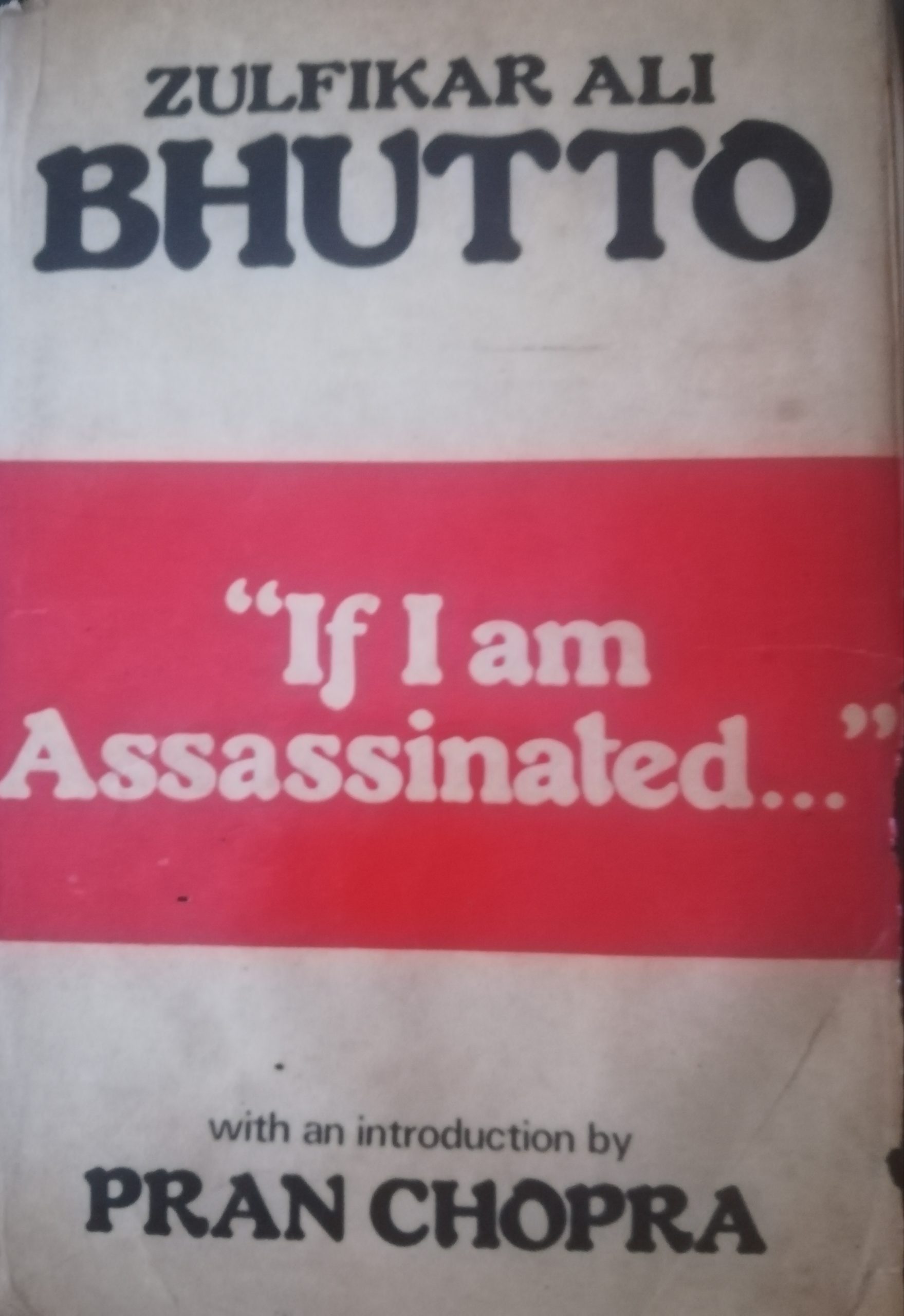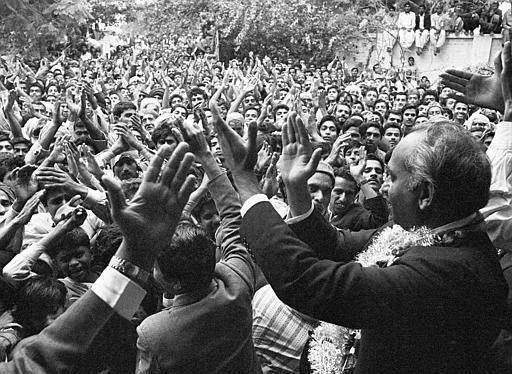
 April 4 – A darkest day of Pakistan’s history when Zulfikar Ali Bhutto, the first elected Prime Minister of country was hanged to death, written in the annals of history as the Judicial Murder
April 4 – A darkest day of Pakistan’s history when Zulfikar Ali Bhutto, the first elected Prime Minister of country was hanged to death, written in the annals of history as the Judicial Murder
Sindh Courier reproduces here excerpts from the introduction of the book ‘If I am assassinated’, authored by Shaheed Zulfikar Ali Bhutto in death cell.
‘If I am assassinated’ is a book published in Delhi, India in February 1979 and contains the text of document presented by Shaheed Zulfikar Ali Bhutto to the Supreme Court of Pakistan in his appeal against the death sentence passed on him by the Lahore High Court.

The book was blacked out in Pakistan. Its publication was banned. The press in which Bhutto’s Counsel tried to have it printed was sealed. But anonymous enterprise smuggled it out of the ‘stinking death cell’ in which the former President and Prime Minister of Pakistan Zulfikar Ali Bhutto wrote it “with the paper resting on my knees,” says the flap note of the book.
“The disclosures are too dangerous, too sensational for the Pakistan rulers to face publicly. He accuses them of conspiring with a foreign power, of being bribed by it to overthrow him,” the flap note of the book stated further adding that “What Bhutto’s fate will be is unknown as this book goes to press (assassination of Bhutto), but whether he is hung or he lives, the consequences will be far reaching. Since then several additions of this book have been published besides translation in Urdu and other languages.
Flap note says: “He has ruled the politics of Pakistan as President and Prisoner. He or his Ghost will continue to rule them.”
The introduction of this book was written by Pran Chopra, who was a veteran Indian journalist of world repute and author of several books.
From his death cell in Rawalpindi, ousted Prime Minister of Pakistan Zulfikar Ali Bhutto wrote his final testament. Under trial for authorizing the murder of a political opponent, Bhutto writes a scathing denunciation of military dictatorship, rebuts the allegations against his government made in General Zia-ul-Haq’s White Paper, and hints at his greatest achievement: the founding of Pakistan’s nuclear program.
Bhutto predicted that, should his murder be permitted, the rivers of the Indus Valley will turn red with blood. The book “If I Am Assassinated” continues to be the most controversial piece of political literature to have been written in Pakistan.
Here are some excerpts from the introduction of book written by Pran Chopra quoting certain disclosures made by Bhutto in the book:
In his comments, Pran Chopra says, “Bhutto alive would be a very dangerous man — possibly free one day and probably in power the next day. If he came back to power the first thing he would want to do is to settle scores with his present tormentors, and General Zia will want to deny him that opportunity by any means he can. If General Zia is convinced, and he has every reason to be, that either it is his neck or Bhutto’s, he will try to save his neck by breaking the other’s when he can. Later it may be too late, because in the eyes of Bhutto, President Zia has already committed “high treason” punishable with death.”
 “This is how the 1973 constitution promulgated by Bhutto describes the offence of any forcible attempt to upset that constitution and General Zia has certainly upset it by force. He has suspended the constitution and has tried to amend it by means, which are not provided in the constitution.”
“This is how the 1973 constitution promulgated by Bhutto describes the offence of any forcible attempt to upset that constitution and General Zia has certainly upset it by force. He has suspended the constitution and has tried to amend it by means, which are not provided in the constitution.”
Chopra also quotes the conversation of Rao Rashid and then Brig. Abdul Naeem, which the Bhutto has referred in his document.
“Rao Abdur Rashid, a former Director of the Intelligence Bureau of Pakistan, has reported to the Supreme Court of Pakistan that Brigadier Abdul Naeem, a trusted member of the military group which rules Pakistan had the following conversation with him one day about Zulfikar Ali Bhutto, President and Prime Minister of Pakistan until he was deposed in a military coup, put into jail and sentenced to death:
Brigadier Abdul Naeem: “Do you think that the army can afford to see Mr. Bhutto back in power?”
Rao Abdur Rashid, a trusted Special Secretary to Bhutto, keeps a discreet silence.
Brigadier Naeem answers his own question and says:
“Obviously it can’t”.
Before departing, Brigadier Naeem advises Rao Abdur Rashid:
“Please cooperate with the army”.
This conversation sums up the dire threat that hangs on the head of Mr. Bhutto “in this narrow, dark, sinking death cell, where I am confined 22 or 23 hours every day.” This is how Bhutto describes what has been his residence for almost a year in the District Jail, Rawalpindi.
Chopra further states:
“Bhutto contends that the Generals had begun to make their moves long before they struck in July 1977. Their plotting had started before the elections in March and the coup matured slowly as the result of a deal between the army and PNA, and between both of them and a “foreign power” (or powers). The deal at the “foreign” level was that the PNA would receive Rs.30 crores for winning the elections, and if it failed the army would be supported in a bid for a coup. In return the new rulers of Pakistan would drop the nuclear reprocessing plant which Bhutto had negotiated with France.
“The deal at the local level was that the army would support the PNA’s election campaign (and did support it in various ways according to Bhutto). If the election bid failed the army would take over and later invite PNA to join the government (but only as a very junior partner) to add a civilian flavor to the military government.”
He further quotes Bhotto, who states in his document that “Even now my open commentary upon the Hamoodur Rehman Report would irreparably damage the name of the armed forces,” he warns General Zia. He calls it “a severe indictment of the armed forces and the military hierarchy …. it is story of rape, plunder and loot.” From his prison, Bhutto has demanded that General Zia should not be allowed to tamper with the Report.
 “To this Indictment of what the army did in what was then East Pakistan, Bhutto adds the explicit warning that continued army rule is creating an even bigger crisis in what remains of Pakistan. “The crisis that Pakistan faces today is far graver and more catastrophic than the crisis of 1971.” Bhutto adds “that in 1971, the danger was of losing East Pakistan. In 1978, the danger is of losing all of what remains of Pakistan.” At one level there are judicial consequences of continued martial law, he says and at another level more dire consequences in terms of public order.
“To this Indictment of what the army did in what was then East Pakistan, Bhutto adds the explicit warning that continued army rule is creating an even bigger crisis in what remains of Pakistan. “The crisis that Pakistan faces today is far graver and more catastrophic than the crisis of 1971.” Bhutto adds “that in 1971, the danger was of losing East Pakistan. In 1978, the danger is of losing all of what remains of Pakistan.” At one level there are judicial consequences of continued martial law, he says and at another level more dire consequences in terms of public order.
Pran Chpra says, “I cannot think of any practising politician today who has shown the sweep of vision Bhutto shows in surveying military coups around the world, or has the intellectual penetration he shows in laying bare the roots of coup-gemony in Pakistan. But I can think of several practising politicians who could profit from four inter-connected warnings he gives to the Third World countries:
“Military coup d’état is the worst enemies of national unity.”
If a coup d’état becomes a permanent part of the political infrastructure, it means the falling of the last petal of the last withered rose, it means the end.”
“The events of the last 20 years have made me arrive at the unambiguous conclusion that at present, the greatest threat to the unity and progress of the Third World is from coup-gemony.”
Coup-gemony is the bridge over which hegemony walks to stalk our lands.”
__________________________